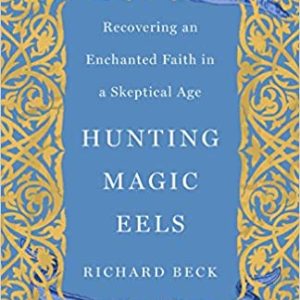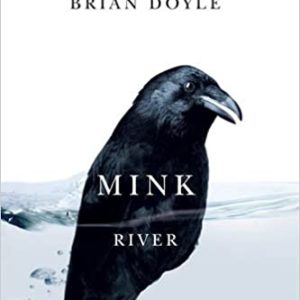Hunting Magic Eels
Hunting Magic Eels: Recovering an Enchanted Faith in a Skeptical Age is a new book by the psychologist and college professor Richard Beck. Beck is a also a theologically astute Christian.
 He relates a conversation with his Dad, in which the elder Beck says, “People don’t have a desire for God anymore.” Beck responds to his father (while addressing his reader), “I actually think young people do desire God . . . they call this desire anxiety, depression, or loneliness. Everywhere you look in America, you see longing for God. You see it in the rising rates of suicide and addiction. People are in pain. But we’ve lost the ability to correctly name and diagnose the hurt. The only language young people have for God is the language of mental illness. When they say ‘anxiety’ or ‘depression,’ they are expressing a desire for God.”
He relates a conversation with his Dad, in which the elder Beck says, “People don’t have a desire for God anymore.” Beck responds to his father (while addressing his reader), “I actually think young people do desire God . . . they call this desire anxiety, depression, or loneliness. Everywhere you look in America, you see longing for God. You see it in the rising rates of suicide and addiction. People are in pain. But we’ve lost the ability to correctly name and diagnose the hurt. The only language young people have for God is the language of mental illness. When they say ‘anxiety’ or ‘depression,’ they are expressing a desire for God.”
Beck is not naive. He is not saying that severe mental illness can be fixed with a “come to Jesus” moment. But he is pointing out, “how very unwell we are as a society . . . the evidence is everywhere,” and that it has a lot to do with a spiritual void, with the way life has been rendered one-dimensional in a skeptical age.
He doesn’t exempt the church from blame. “In many ways, Protestantism has been a journey from the mystical to the moral. This mystical to moral shift has played a significant role in disenchanting the world . . . If God is slowly dying, it’s because Christians stopped seeking God and started focusing on being good.” Beck, as you can see is hitting a theme I too often emphasize. Without the experience of God, our ethics become brittle and shrill, and to use a word that was the subject of a recent blog, “Pelagian.”
“For Protestants (Beck is one), liberal or conservative, morality and politics are central and on the front burner. Encountering God is increasingly an afterthought, if it is a thought at all.” In some respects, my entire ministry has been an effort to redress this imbalance. It is what I mean by saying that, “our politics have become too religious, and our religion too political.” It is easy to go to church these days and feel you haven’t heard anything that you couldn’t have gotten from some place else. Which leads some who long for the experience of God to stop going altogether. Can’t say I blame them.
The balance of Beck’s book focuses on “recovering enchantment.” But it’s important to say this does not mean something we do, like trying to “get the Christmas spirit.” It’s not, “let’s all pretend and play a game called ‘enchantment.'” The source of enchantment lies beyond us. We can’t force or control it. It comes to us, which is the meaning of “revelation.” It’s not an “I’ve found it,” so much as “it found me.”
 Recently, my book group read Brian Doyle’s wonderful novel Mink River, as part of our Northwest authors series. Doyle finds an enchanted world in a small, rainy town on the Oregon Coast. It is world where the membrane between the sacred and secular is a thin one, and where grace, both visible and invisible, hovers over the beauty and tragedy, the death and the life of the town’s people.
Recently, my book group read Brian Doyle’s wonderful novel Mink River, as part of our Northwest authors series. Doyle finds an enchanted world in a small, rainy town on the Oregon Coast. It is world where the membrane between the sacred and secular is a thin one, and where grace, both visible and invisible, hovers over the beauty and tragedy, the death and the life of the town’s people.
Doyle, who died too young in 2017, was Catholic. It was perhaps my Protestant sensibility that balked a little at some of his most overt magical moments in Mink River, but in the end I loved it, and recommend it as another way to come at the enchantment for which, Beck says — and I agree — our modern souls ache.
![Anthony B. Robinson [logo]](https://www.anthonybrobinson.com/wp-content/themes/anthonybrobinson/images/logo.png)
![Anthony B. Robinson [logo]](https://www.anthonybrobinson.com/wp-content/themes/anthonybrobinson/images/logo-print.png)